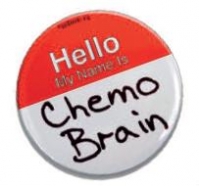Monthly Archive: July 2012

For over a decade cancer patients have complained of difficulty with concentration and memory during chemotherapy treatments. Some survivors even experienced it well after their treatment had ended. Other complaints included persistent fatigue, depression, difficulty with multitasking, and poor sleep….
Read more
Use of mammography for breast cancer screening has improved among foreign-born women living in the United States. However, these women are still less likely to have undergone screening than native-born American women as reported by the Fourth AACR Conference on…
Read more

In 1931 Otto Warburg, a German physiologist and physician, conducted an important study on cancer cells that is helping scientists today to understand the effects of cancer on the human body. Warburg was one of the century’s leading biochemists and…
Read more

Biospecimens play an important role in how scientists and physicians understand and treat cancer. Human biospecimens include tissue, blood, urine and other bodily fluids that have been collected by doctors and scientists for centuries. Each day millions of people visit…
Read more
Colorectal cancer is still the third leading cause of cancer deaths in the United States, but since the mid-1980’s the rates have slowly declined. That is, in some ethnic groups but not in all. Poorer patients, sometimes black, indigent, or…
Read more
This week results from two clinical trial studies were released by the American Society of Clinical Oncology and published in the New England Journal of Medicine, announcing that Avastin (also called bevacizumab), a chemotherapy drug used for other types of…
Read more



